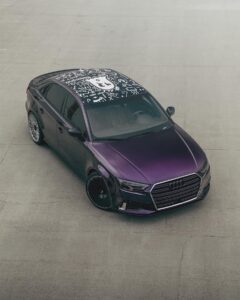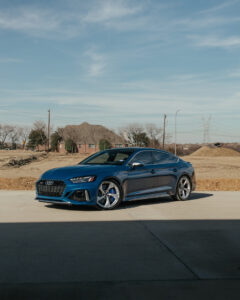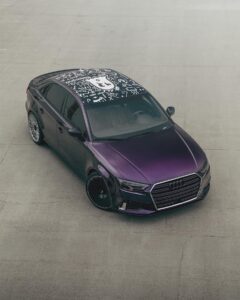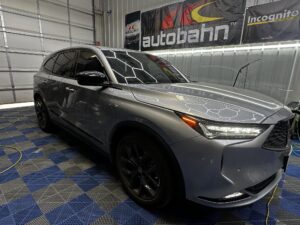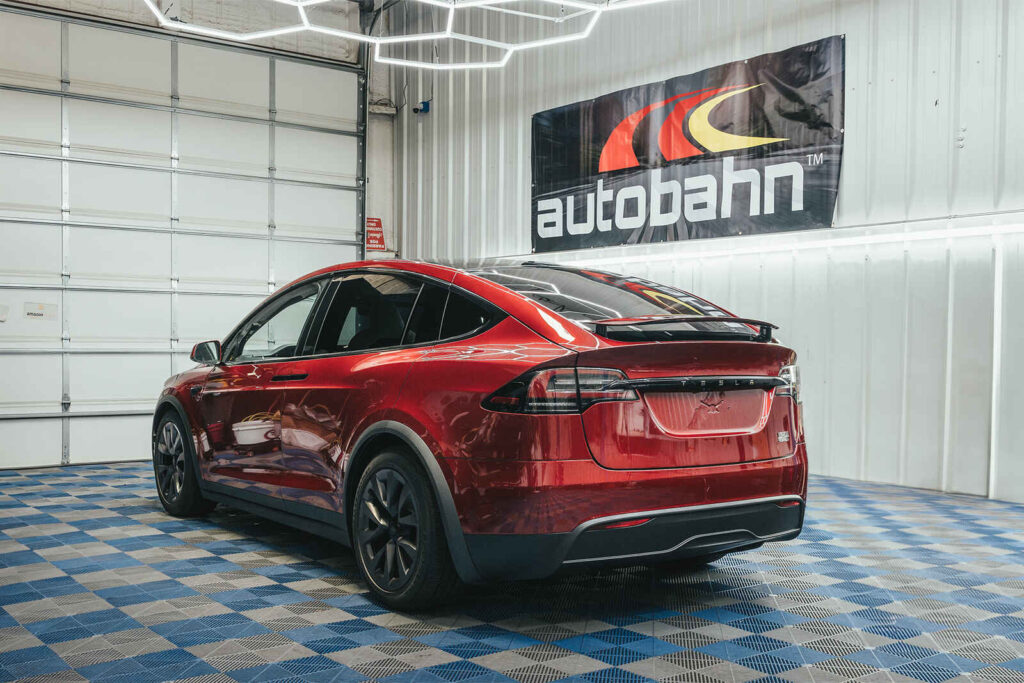If you’re a car owner in Fort Worth, TX, you know how challenging it can be to keep your vehicle looking brand new. Whether it’s the harsh sun, unexpected hail, or flying rocks on the road, your car’s paint faces countless threats every day. But don’t worry, there’s a solution that’s become a favorite among drivers in the area: Paint Protection Film (PPF).
At AutoPro DFW, we’re experts when it comes to keeping your ride looking flawless. Today, we’ll dive into a detailed comparison of PPF with other popular vehicle protection products. Is PPF really the best option? Or are other alternatives just as good for your car? Let’s find out!
What is Paint Protection Film (PPF)?
Before we jump into the comparisons, let’s make sure we’re on the same page about what PPF actually is. Paint Protection Film, often referred to as a clear bra, is a transparent urethane film that’s applied to your car’s painted surfaces. It’s designed to protect your car from scratches, rock chips, stains, and other environmental damage without altering the appearance of the paint. Think of it as a shield that absorbs impacts, so your car doesn’t have to.
Why Choose PPF for Your Car?
Here in Fort Worth, the conditions can be tough on your vehicle. Between the brutal Texas sun, frequent rain, and construction zones, your car is constantly exposed to elements that can damage its paint. PPF is the ultimate solution for keeping your car in pristine condition.
Key Benefits of PPF:
- Self-Healing: Small scratches on the film can disappear with heat.
- Long-Lasting Protection: PPF can last up to 10 years when installed properly.
- UV Protection: It prevents your car’s paint from fading due to sun exposure.
- Hydrophobic: PPF repels water, dirt, and grime, making your car easier to clean.
At AutoPro DFW, we offer high-quality PPF that’s custom-fit to your vehicle, providing protection exactly where it’s needed.
PPF vs. Ceramic Coating: Which One is Better?
What is Ceramic Coating?
Ceramic coating is a liquid polymer that bonds with your car’s paint to create a hydrophobic surface. It’s designed to protect against water spots, dirt, and UV rays, but it doesn’t offer the same level of impact protection as PPF.
Key Differences Between PPF and Ceramic Coating
- Protection Level: PPF offers superior protection against rock chips, scratches, and other physical damage. Ceramic coating, on the other hand, is more focused on providing a shiny, water-resistant surface.
- Durability: PPF is thicker and can last up to a decade with proper care. Ceramic coatings typically last 2–5 years.
- Maintenance: Ceramic coatings require regular reapplication to maintain their effectiveness, while PPF generally requires less upkeep.
- Cost: Ceramic coating is more affordable upfront, but over time, PPF may be a better investment due to its superior protection and longevity.
In Fort Worth, where gravel roads and harsh weather conditions are common, PPF’s added protection makes it a solid choice for car owners.
PPF vs. Car Wax: The Classic Showdown
Car Waxing 101
Car wax has been a traditional method for protecting your car’s paint. It’s a quick way to add a glossy finish and provide some protection from environmental elements. However, the protection it offers is short-lived and doesn’t hold up against the kind of damage PPF can handle.
How PPF Outperforms Waxing
- Protection Against Scratches: PPF creates a physical barrier that shields your car from physical damage, while wax just adds a layer of shine with minimal protection.
- Longevity: Wax needs to be reapplied every couple of months, while PPF can last years with minimal maintenance.
- Resistance to Debris: PPF helps guard against chips from rocks, gravel, and other debris—wax can’t handle that level of impact.
In Fort Worth, with its busy streets and construction zones, PPF is far more effective than waxing, which is more suitable for cosmetic appeal than serious protection.
PPF vs. Vinyl Wrap: Aesthetic vs. Protection
What is Vinyl Wrap?
Vinyl wraps are essentially large sheets of adhesive vinyl that cover your entire vehicle or specific areas. They’re often used to change the color of a vehicle or add custom graphics. While vinyl wraps offer some protection against the elements, they’re not nearly as durable or protective as PPF.
Key Differences Between PPF and Vinyl Wrap
- Purpose: Vinyl wraps are primarily designed for cosmetic purposes (changing your car’s appearance), while PPF is designed to protect your paint.
- Durability: PPF is much more durable and can handle the wear and tear of road debris, whereas vinyl wraps are more susceptible to peeling and fading.
- Aesthetic: While PPF is invisible and doesn’t alter your car’s look, vinyl wraps can drastically change the appearance, offering a wide variety of colors and designs.
If you’re looking to protect your car’s paint from damage while keeping its original appearance, PPF is the better choice. If you want to customize your car’s look, vinyl wraps may be more your style, but you’ll sacrifice the level of protection PPF offers.
PPF vs. Paint Sealant: A Quick Glaze or Long-Term Protection?
What is Paint Sealant?
Paint sealant is a synthetic product designed to bond to your car’s paint and create a layer of protection. It’s often confused with ceramic coatings, but it doesn’t provide as much protection against harsh elements or physical damage.
Comparing PPF and Paint Sealant
- Protection: Paint sealants protect against water, dirt, and minor contaminants, but they don’t defend against rocks, scratches, or debris the way PPF does.
- Durability: While a paint sealant can last several months, PPF provides long-lasting protection for years.
- Ease of Application: Paint sealants are easier to apply and cheaper than PPF, but they require frequent reapplication to maintain effectiveness.
In the tough conditions of Fort Worth, PPF will give you peace of mind, knowing that your vehicle is well protected against not just dirt but also physical damage.
Cost Comparison: Is PPF Worth the Investment in Fort Worth?
Upfront Costs and Long-Term Value
PPF has a higher upfront cost compared to options like ceramic coating, waxing, or paint sealants. However, when you consider the long-term benefits, such as the durability of the protection, the savings on paint repair, and the preservation of your car’s value, PPF is often the more cost-effective choice in the long run.
Why PPF is Worth It in Fort Worth
With Fort Worth’s unique weather and road conditions—frequent rain, intense sun, and construction zones—PPF can save you money over time by preventing costly paint repairs and preserving your car’s resale value.
The Installation Process: Professional vs. DIY
While DIY kits for PPF are available, it’s always best to leave the installation to the experts. At AutoPro DFW, we use the latest tools and techniques to ensure a flawless application. Our professionals know how to handle the intricacies of different car models and ensure that the film is applied without bubbles, wrinkles, or misalignment.
Does PPF Affect the Look of My Car?
One of the biggest concerns with PPF is whether it will alter the appearance of your vehicle. The good news is that PPF is nearly invisible. When applied correctly, it won’t interfere with your car’s original color or design. In fact, many car owners notice that the film enhances the paint’s depth and shine.
PPF for High-Impact Areas: Bumpers, Hoods, and More
Certain areas of your car, like the front bumper, hood, and side mirrors, are especially vulnerable to damage. At AutoPro DFW, we recommend focusing PPF coverage on these high-impact zones to protect your car from chips, scratches, and stains. Of course, we can provide full vehicle coverage for ultimate protection.
Fort Worth-Specific Benefits of PPF
Given the local driving conditions, PPF offers some unique advantages for Fort Worth residents:
- Protection Against Road Salt: In the winter months, road salt can wreak havoc on your car’s paint. PPF helps prevent corrosion.
- UV Resistance: Fort Worth’s sunny climate can cause paint to fade, but PPF protects against sun damage, keeping your vehicle looking newer longer.
Choosing the Right Installer for PPF in Fort Worth
When it comes to Paint Protection Film in Fort Worth, don’t just trust anyone. Choose a professional installer with a reputation for quality and expertise. At AutoPro DFW, we take pride in delivering exceptional service and ensuring your car is protected to the highest standards.
AutoPro DFW Serving the Rhome Community and Beyond in Roanoke, TX
AutoPro DFW is dedicated to serving the diverse needs of the local community of Roanoke, TX, including individuals residing in neighbourhoods like Rhome. With its convenient location near landmarks such as Shale Creek Park and major intersections like W County Line Rd & S County Line Rd, (coordinates: 33.066976, -97.387432), we offer Paint Protection Film services.
Get the Paint Protection Film services in Roanoke, TX at Rhome.
Navigate from Rhome to AutoPro DFW Now
Final Thoughts: Is PPF the Best Choice for Your Car in Fort Worth?
For car owners in Fort Worth, Paint Protection Film (PPF) offers unmatched protection against road debris, scratches, UV rays, and more. While there are other options available—like ceramic coatings, wax, and vinyl wraps—PPF stands out for its durability, long-term value, and superior protection. At AutoPro DFW, we’re here to provide you with the best PPF installation services to keep your car looking brand new for years to come.
FAQs
- How long does PPF last?
PPF can last 5–10 years, depending on the quality of the film and how well it’s maintained. - Can PPF be removed without damaging the paint?
Yes, PPF can be safely removed without damaging the underlying paint, as long as it’s done by a professional. - Does PPF affect the car’s appearance?
No, PPF is transparent and doesn’t alter the look of your vehicle. In fact, it can enhance the paint’s depth and gloss. - Is PPF more expensive than other options?
While PPF has a higher initial cost, it offers superior protection and longevity, making it a worthwhile investment over time. - Can I apply PPF myself?
While DIY kits are available, we recommend professional installation for the best results. The precision and expertise of a professional installer ensure that the PPF is applied flawlessly.

